Alone on the Top of a Mountain, This Wife Had to Carry Her Injured Husband Back to Safety After a Serious Fall
Updated: Nov. 07, 2022
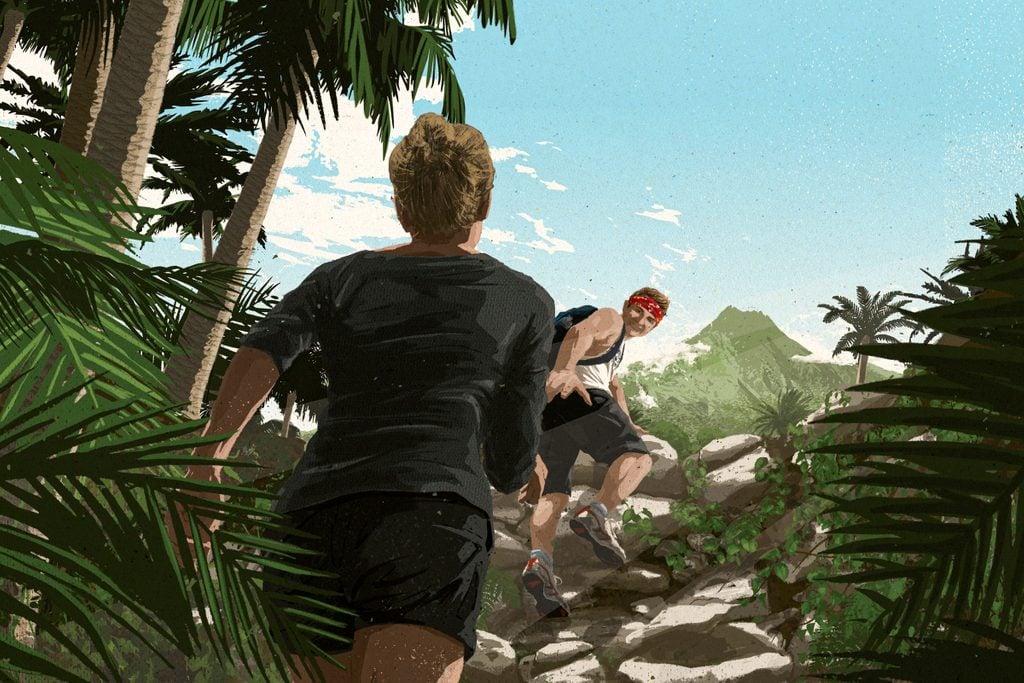
A dream honeymoon hike to the rim of a jungle crater ends with a terrible fall. Now a young bride must get her severely injured husband medical care—by herself.
On a steamy morning in July, Clay and Acaimie (pronounced “Ah-CAY-mee”) Chastain arrived at the base of Mount Liamuiga on the Caribbean island of St. Kitts, ready for their first climb as husband and wife. They had married just five days earlier back home in Crawfordsville, Indiana, the culmination of a storybook romance. Clay, age 23, and Acaimie, age 25, had met at Purdue University, at a square dance held for Clay’s Christian fraternity and Acaimie’s Christian sorority. Clay—a handsome farmer’s son with a charming, puppy-dog energy—was immediately smitten by Acaimie’s beguiling smile. They’d lasted through college and the tough years after, when Acaimie moved to Illinois for work as a store manager and Clay finished his master’s degree in swine nutrition back at Purdue. They took turns enduring the weekly five-hour drives to see each other, but they were devoted and slightly old-fashioned—they refused to live together in the house they’d bought together in Indianapolis until after their wedding.
Like any good couple, they had their complementary differences. Acaimie had always been the worrier. “A realist,” she says. “A pessimist,” Clay replies. She liked order and structure. She wasn’t just fastidious about washing her sheets once a week; she did it at the same time every Saturday. Clay, on the other hand, was a perpetual optimist—maddeningly carefree and easygoing, always certain that things would turn out just fine.
So it was Clay who wanted to take a day of their Caribbean honeymoon and spend it scaling Mount Liamuiga. The highest point on St. Kitts, Liamuiga is also a dormant volcano that starts in the clouds and plunges down to meet the sea. Called Mount Misery by the British who colonized the island, it is a popular day hike for vacationers looking for adventure.
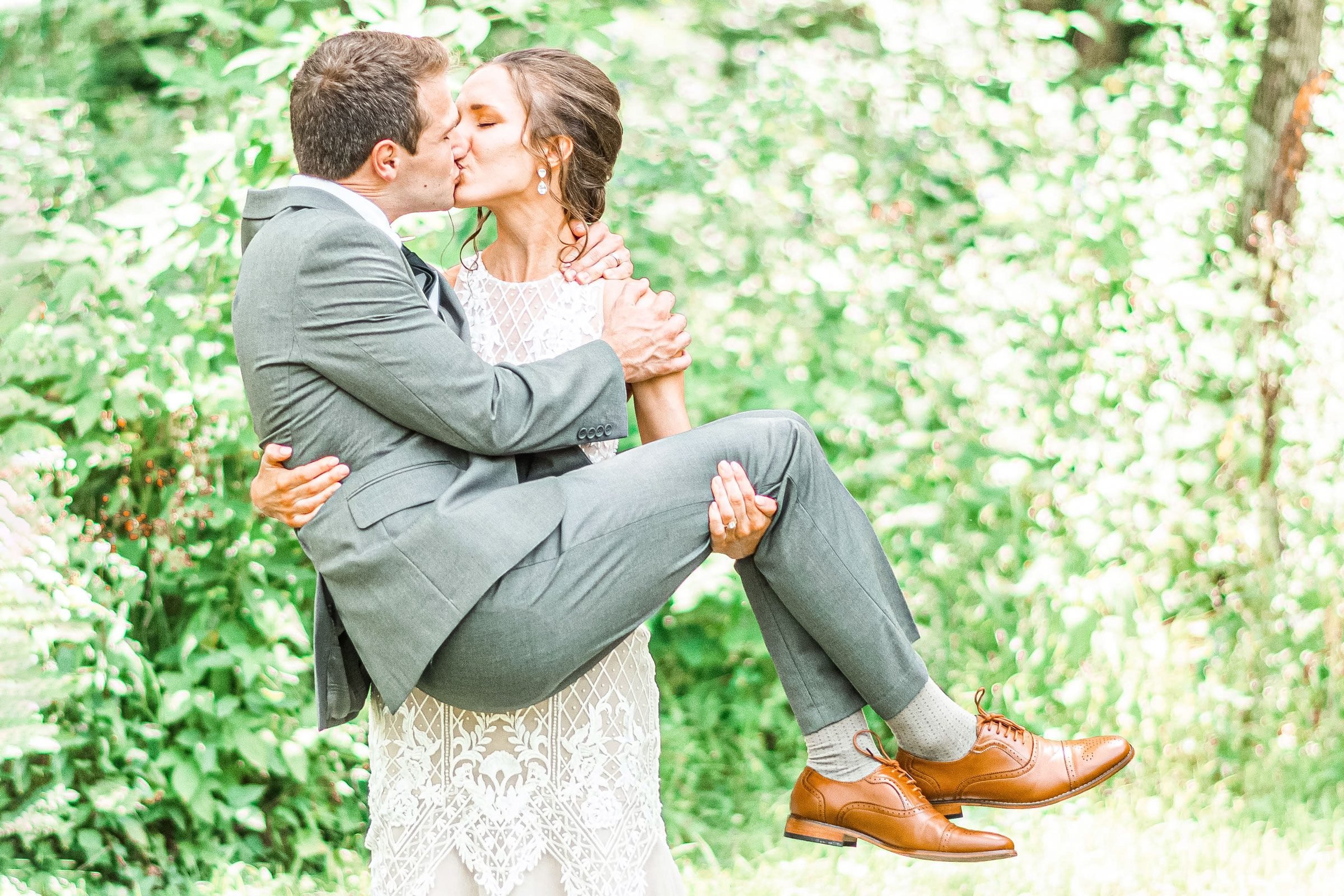
The couple, dressed in T-shirts and sneakers, arrived for their journey in a rental car expecting to find more information on site. Instead, they found an empty dirt parking lot with just a small plaque marking the trailhead. They made their way up anyway, the narrow path taking them through tropical growth so lush you couldn’t see the sky. Vervet monkeys chattered in the trees; the air was thick and humid.
It took them nearly three hours to reach the peak, but the view—the view!—made it all worthwhile. The island of St. Kitts stretched before them, the green rain forest carpet cascading down toward the sapphire Caribbean water. They may have been tired and sweaty—Clay’s red bandanna was soaked—but they couldn’t have been happier as they ate their sandwiches, took a few selfies, and walked around the rim of the volcano completely alone.
That’s when Clay saw it: a small trail, semi-hidden beneath plant life, that led into the volcano’s crater, a bowl of green with cloud forest giving way to a grassy meadow. A series of screw eyes had been drilled into the rocks, with ropes that led down. For Clay, the sight was unbearably inviting. It felt like a secret entrance to a primeval paradise. Acaimie was less enthusiastic. The trail was steep, and she was afraid of heights, but she gamely followed Clay’s lead. After just a few minutes of descent, though, she’d had enough. She told her husband she’d wait on the rocks just off the trail while he went exploring. “Just be quick,” she said as she watched him set off on the precipitous path, zigzagging while clutching the rope.
A few minutes later, she heard a crash—a noise that sounded like a large branch snapping, followed by the sound of something big rolling downhill. “Clay?” she called. Silence.
Acaimie fought back a flutter of panic. She hadn’t heard anyone call out, after all. The sound might have been anything. A few minutes later, she heard something faint that could have been a human voice. She leaned forward, craning her neck. Then she heard it again, and this time she was certain: It was Clay, speaking in an eerily childish tone she hardly recognized, calling for help from deep within the crater.
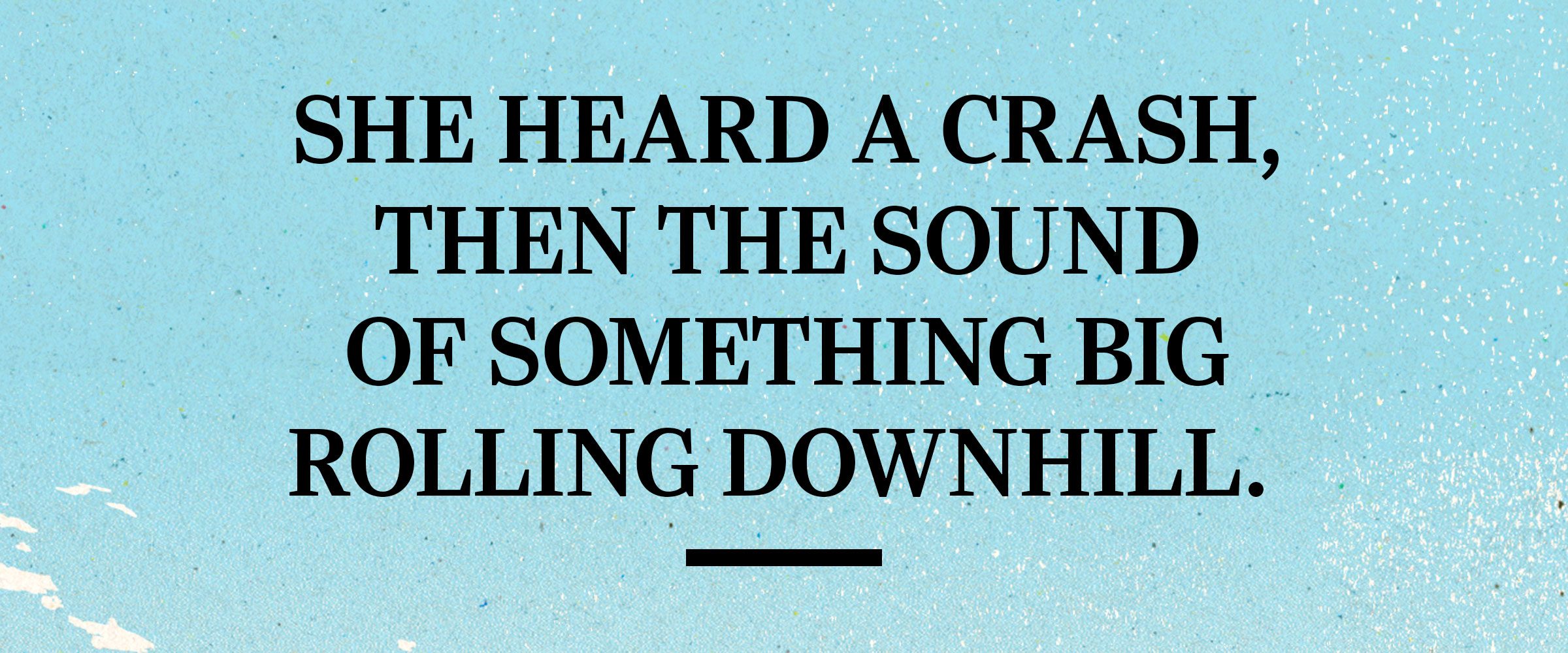
As she looked over the lip of the volcano, she tried to suppress some of her worst worries. Her phone wasn’t getting a signal, and her cries for help were met with only silence. “Clay!” she shouted as loud as she could. “Clay, are you OK?”
Acaimie gripped the rope and began scrambling down the trail. When the path became too steep, she slid on her butt, her legs and arms getting bruised and scraped in the process. Then, just off the trail, she saw a flash of red. It was Clay’s bandanna. And next to it was his cell phone.
She grabbed both and continued down, screaming for Clay all the way.
“Help,” he said in that strange voice.
“I’m coming! Stay where you are,” she said. Finally she spotted his white shirt through the trees. She wanted to prepare for what she was going to see, worried that if he were badly injured the sight of him would put her into a state of shock. “Tell me what’s wrong,” she said as she approached.
“I don’t know,” he said weakly.
Clay was sitting hunched over with his head in his hands, his back to Acaimie. When she got closer, she could see that he was bleeding from the back of his head, and his neck and shoulders were scraped. Walking around him, she saw that he’d been vomiting. Blood ran down his face.
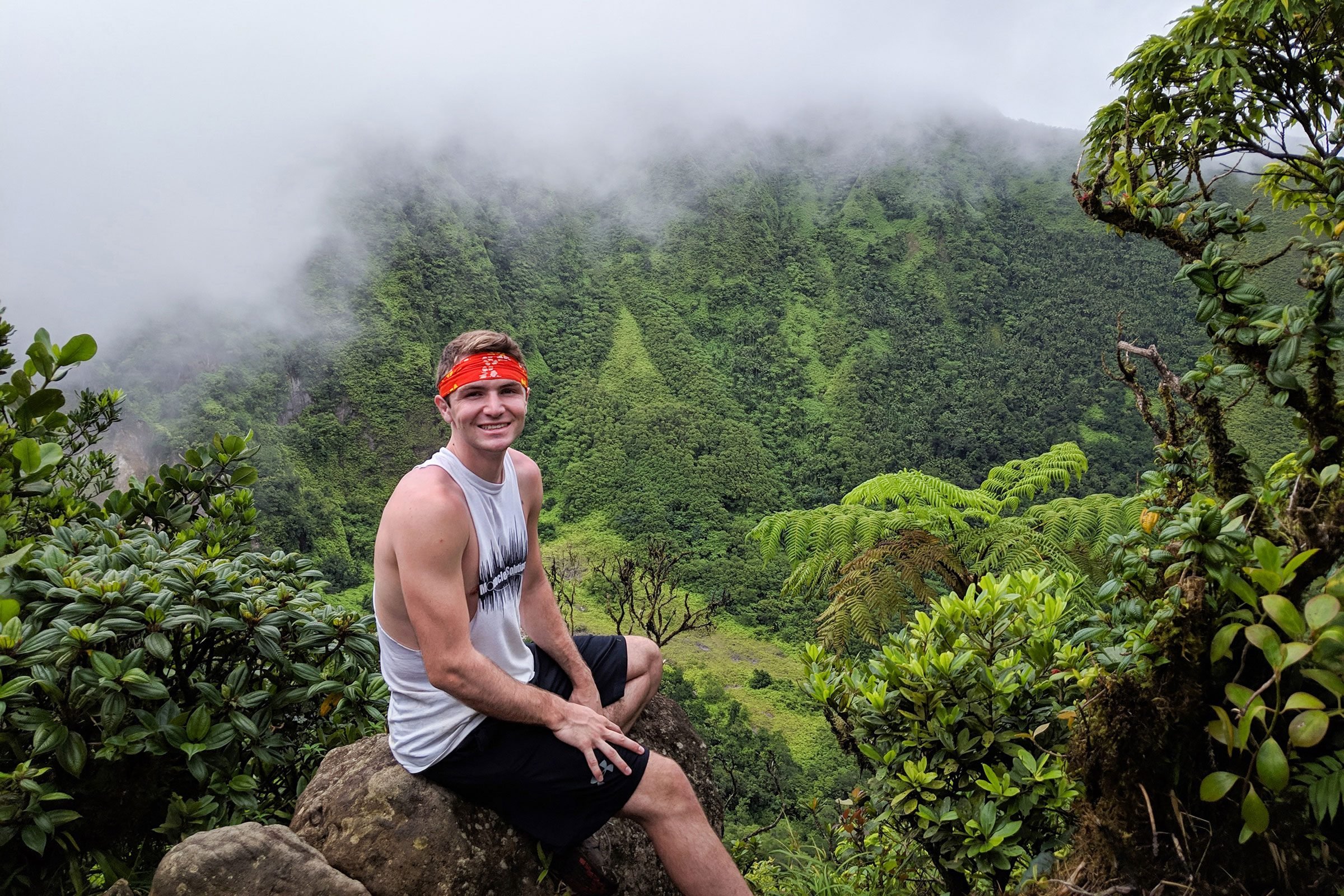
Perhaps the rope he’d been holding had snapped, or maybe he’d just missed a step, but it was clear he’d fallen a long way. He was badly concussed. “Where are we?” he asked. She explained they were on a hike on St. Kitts. “Why aren’t you calling for help?” he asked. Their phones weren’t getting cell service, she told him. He seemed to take that in. Then, 30 seconds later: “Where are we?”
Acaimie tried to clear her mind. They were alone in the volcano without cell service. There was only one thing to do: She needed to drag him out somehow.
“Look at me, Clay,” she said. He looked through her, his eyes swimming. “We’re going to have to climb out of here, and you’re going to have to listen to me.”
Acaimie hoisted Clay shakily to his feet. He had no balance and couldn’t support himself. The two of them stumbled forward, and Acaimie put his hands on the rope. She told him to hold tight as she placed Clay in front of her and pushed him from behind. He lurched forward, flailing like a drunk, but he seemed able to control his limbs just well enough to follow Acaimie’s directions. When they reached a particularly steep section, she bent down, picked up his feet, put them in good footholds so he wouldn’t slip, and pushed again.
Inch by inch, step by step, they climbed. After what couldn’t have been more than half an hour but felt like forever, they reached the top. “Help!” Acaimie yelled. She’d hoped that once they reached the top they’d find a group of hikers, but the trail was empty. There was no choice but to try to make it back to the trailhead alone. It was about 12:30. It had taken them three hours to reach the summit. How long, she wondered, would it take them to reach their car?
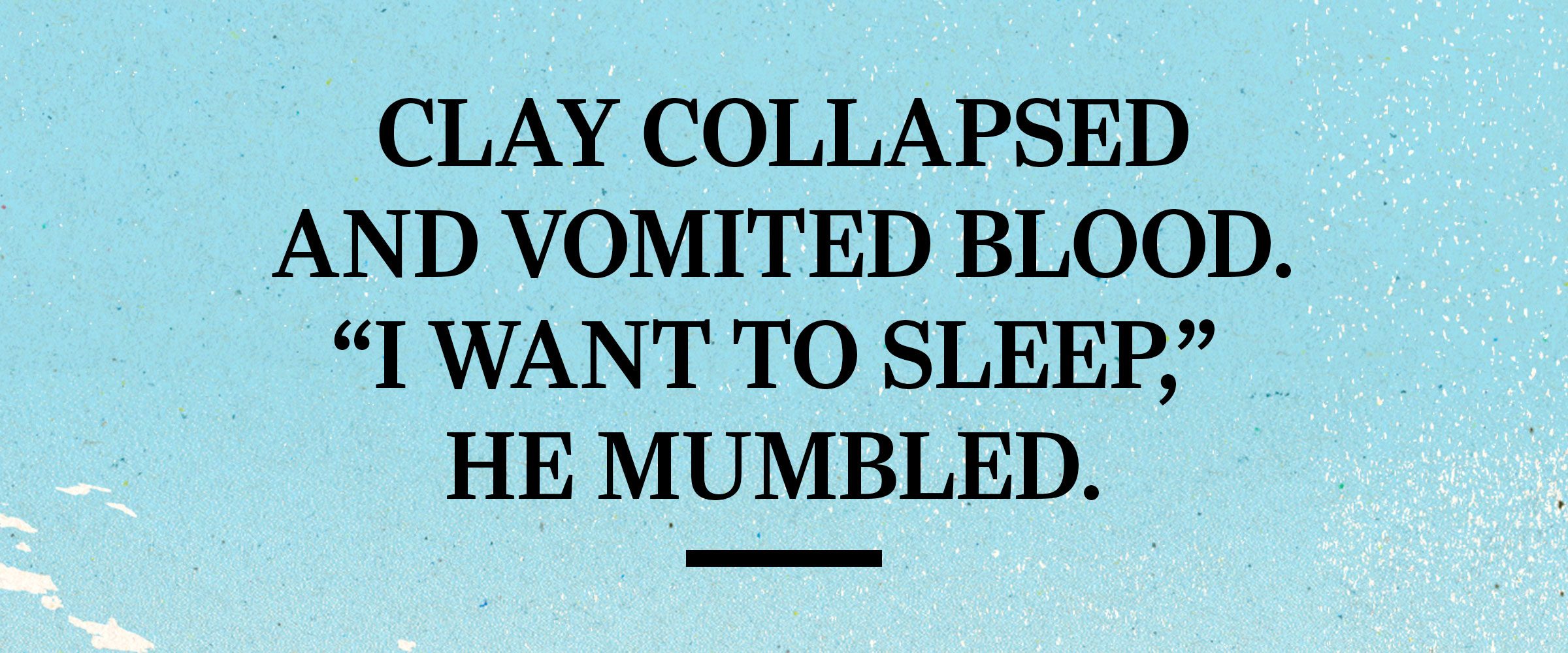
Putting her husband’s arm over her shoulder, Acaimie led him back down the trail. It was almost like a black-diamond ski run: sheer and winding as it cut back and forth through rain forest so thick she could never see more than a few yards ahead. Clay’s legs flopped beneath him; at times he almost began running down the hill because of this lack of control and Acaimie had to struggle to make sure he didn’t send them crashing into the trees. In particularly steep sections, she sat Clay down, shuffled ahead of him, and had him slide into her arms.
As they made their way, the sun was sinking lower in the sky and Acaimie’s mind raced. The path was confusing and indistinct in places, with smaller trails branching off into the wilderness. What if they got lost, she wondered. Would Clay survive the night?
She checked her phone again. Still no signal.
After more than two hours, Clay seemed to be getting worse. He was losing what little control he’d had over his body. Every ten minutes or so he’d stop, collapse on the trail, and begin vomiting blood. “I want to sleep,” he mumbled now, shutting his eyes. Acaimie urged him to keep moving. “You’re doing such a good job. I’m so proud of you,” she kept repeating, unsure if any of it was getting through to her husband. Once again she checked her phone. No signal.
It dawned on her that maybe she should leave Clay there and run ahead and get help. But one look at him and she nixed that idea. She worried that in his state, he might wander off into the wilderness or stumble down the trail and injure himself. She needed him to keep going.
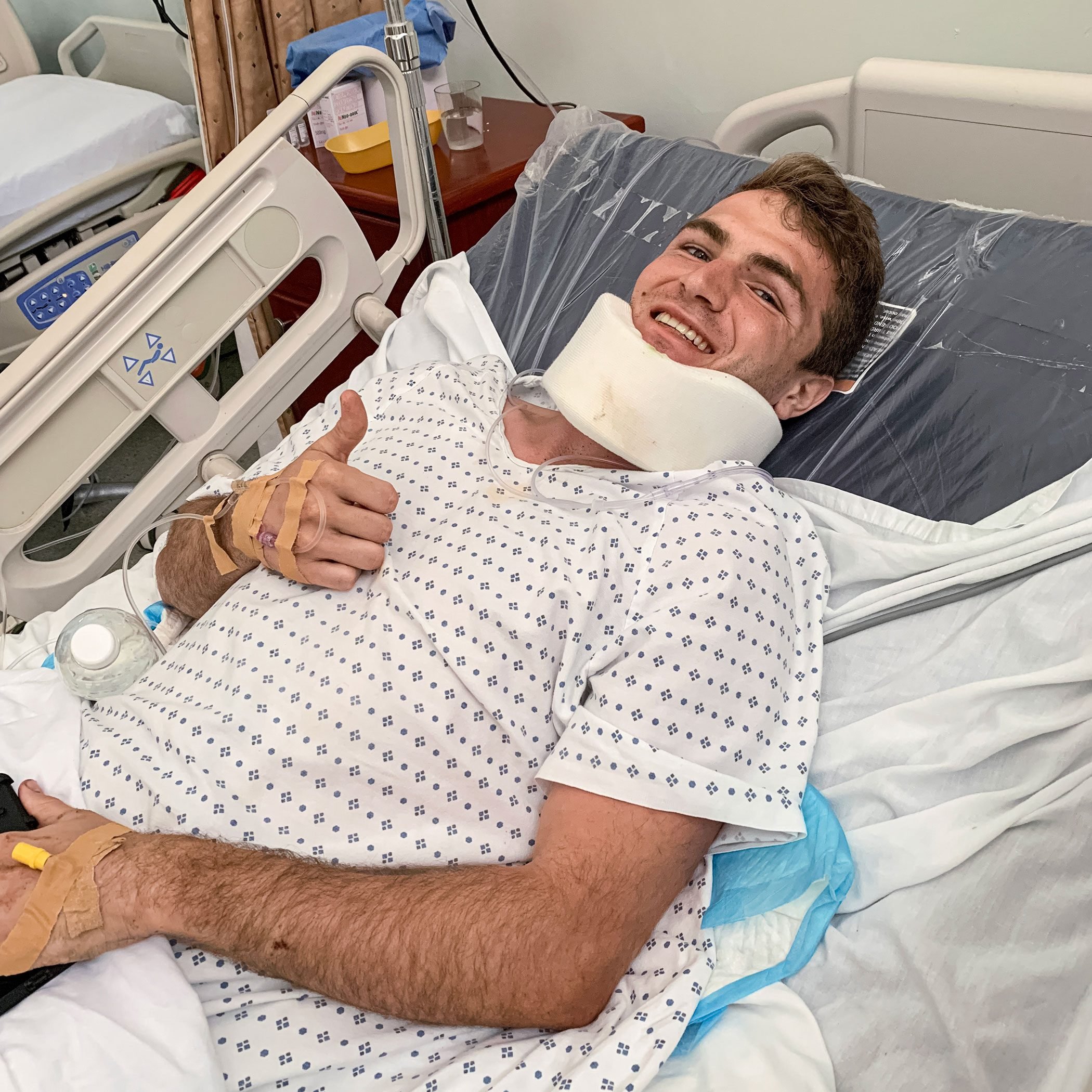
They continued on—Acaimie guiding Clay, Clay barely able to move forward. After hours of painful but exhausting progress, they took a break. She instinctively pulled out her phone to check for a signal. Yes! It was faint, but it might work. She dialed 911 and heard the welcome sound of another person’s voice. She described what had happened—the fall, the vomiting, the blood, the disorientation. The dispatcher, barely audible, asked whether they were able to make it to the trailhead, or did they need a helicopter? Acaimie looked around. With the thick covering, there was no way a helicopter could land anywhere near them. She told him they’d keep trying to make their way down.
But as they moved forward, she became more scared. Clay’s condition was continuing to deteriorate. He could hardly use his arms and legs. At one point, Acaimie couldn’t support him and gravity took over, sending him flying out of her arms and rolling down the hill, smashing into a tree. He lay there in a heap. Then he started vomiting blood again.
She dialed 911 once more. “If the paramedics are anywhere near the trail, they need to start heading up now!” she told the dispatcher. When she hung up, she looked down the trail, calling out for help as loudly as she could until her voice grew raspy. Clay was getting cold and clammy. She didn’t know whether they could go any farther.
Then she heard something. It was faint and could have been almost anything. She didn’t move a muscle, afraid she might miss it if it came again.
“Hello!” someone called out.
Acaimie leaped up. “We’re here!” she yelled as two paramedics came into view. “We’re here!”
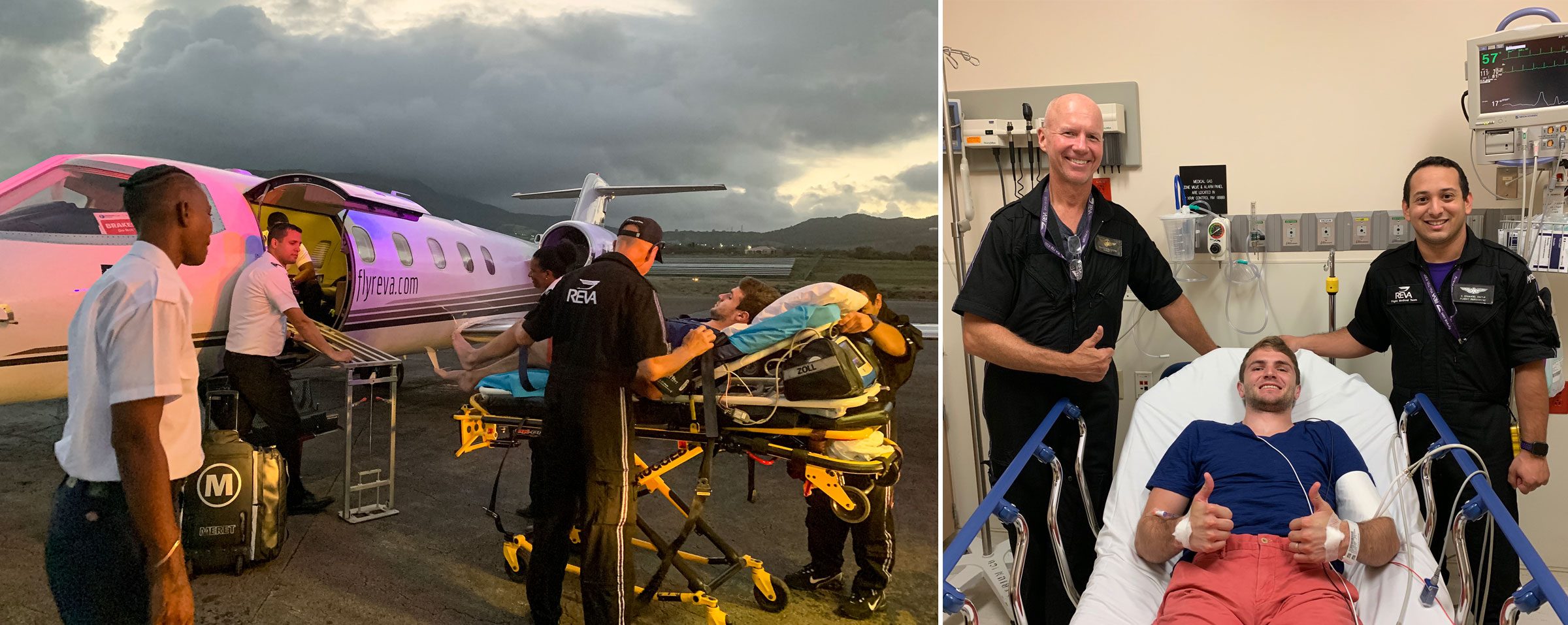
The paramedics wrapped Clay’s arms around their shoulders, and then each took a leg. In this cumbersome manner, they carefully carried Clay down the mountain to the ambulance waiting at the trailhead. Acaimie sat in the front of the ambulance—she was hyperventilating, and her hands eventually became numb from lack of oxygen. She listened in horror as the paramedic in the back yelled to the driver, “He’s still vomiting blood; we need to get to the hospital!”
At the emergency room, doctors discovered just how vast Clay’s injuries were. They included a bad concussion, a fractured vertebra, a fractured skull, and a spinal fluid leak.
Clay spent a painful week recuperating in a St. Kitts hospital before being medevaced to a hospital in Florida, where doctors placed a shunt in his spinal cord to drain excess fluid. After nine days, he flew home to Indiana for several months of physical rehab and visits with specialists, including a neurosurgeon and an audiologist. But he was alive. And as his mind slowly cleared and the enormity of what he had endured became apparent, Clay was amazed at what his wife had done for him.
Today, the couple are in their new home in Indianapolis. Nearly a year later, Clay has regained the balance he lost, but he’s now deaf in one ear. “It’s really not that bad, a minor inconvenience at worst,” he says, ever positive.
When Clay and Acaimie think about what happened in St. Kitts, it’s with a strange mix of emotions. A honeymoon is supposed to be a chance for connection—an island of time in the midst of a busy life for people to truly get to know each other. But even though their honeymoon had turned into a nightmare, it cemented their relationship. The words “in sickness and in health” were no longer just a quaint refrain said in front of friends. To see one’s partner under the most awful conditions imaginable had created a kind of intimacy that was different from what they’d had before.
“We got shell-shocked, but in a good way,” says Clay today. “You realize what you have. And you become so thankful.”